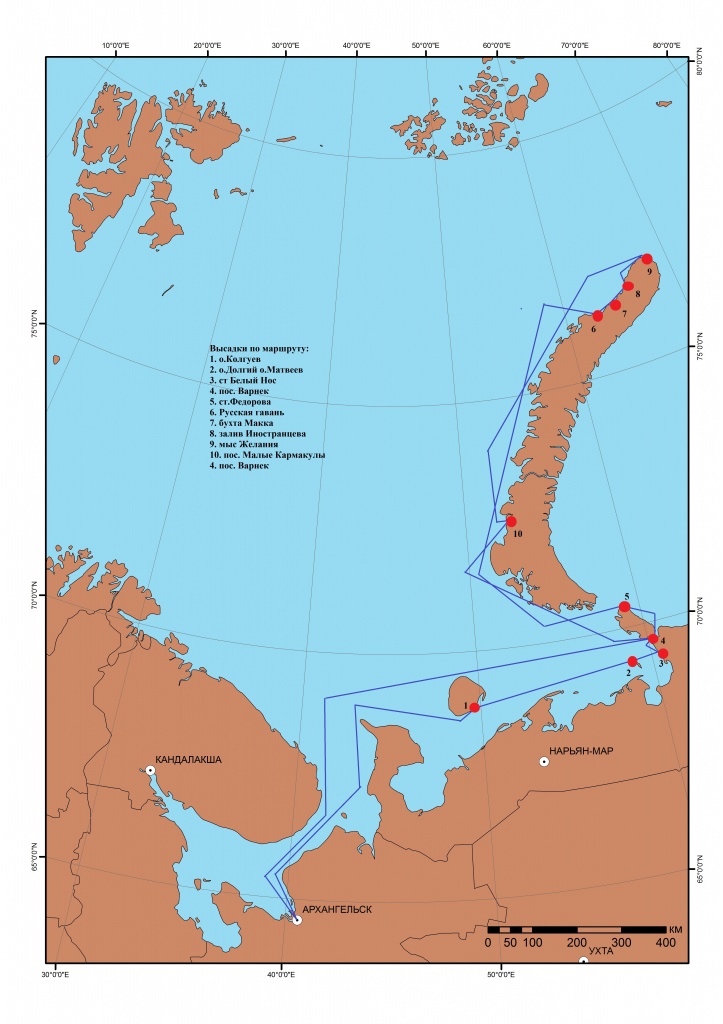ИнститутыИнститут математики, информационных и космических технологий Заочный финансово-экономический институт Институт естественных наук и биомедицины Институт комплексной безопасности Институт медико-биологических исследований Институт педагогики и психологии Институт социально-гуманитарных и политических наук Институт строительства и архитектуры Институт теоретической и прикладной химии Институт физической культуры, спорта и здоровья Институт филологии и межкультурной коммуникации Институт экономики и управления Институт энергетики и транспорта Гуманитарный институт филиала в Северодвинске Институт судостроения и морской арктической техники филиала в Северодвинске Research |
Expedition Dates: June 07-27, 2016 Expedition Duration: 20 days Expedition Organizers: Northern (Arctic) Federal University named after M. V. Lomonosov; Federal State Budgetary Institution “Northern Department of Hydrometeorology and Environmental Monitoring Agency” Expedition Route: Arkhangelsk – Kolguev Island – Matveev Island – Dolgy Island – Belyi Nos Meteostation – Varnek Settlement (Vaygach Island) – Meteostation named after Fedorov (Vaygach Island) – Malye Karmakuly Settlement (Novaya Zemlya) – Russkaya Gavan’ Bay (Novaya Zemlya) – Mac Bay (Novaya Zemlya) – Inostrantsev Bay (Novaya Zemlya) – the Zhelaniya Cape (Novaya Zemlya) – Arkhangelsk. Expedition participants: 58 people (students, post-graduate students, research fellows of both Russian and foreign scientific and academic institutions) Goals:
Scientific and Research Program:
Educational program is aimed to develop interdisciplinary knowledge of the Arctic region among both Russian and foreign students by means of acquaintance with Russian Arctic ecosystems and historical and cultural heritage. Educational modules
|
|

